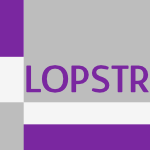16 papers:
 PEPM-2015-VerstoepH #analysis #functional #higher-order #strict
PEPM-2015-VerstoepH #analysis #functional #higher-order #strict- Polyvariant Cardinality Analysis for Non-strict Higher-order Functional Languages: Brief Announcement (HV, JH), pp. 139–142.
 ICFP-2010-HoldermansH #analysis #higher-order #polymorphism
ICFP-2010-HoldermansH #analysis #higher-order #polymorphism- Polyvariant flow analysis with higher-ranked polymorphic types and higher-order effect operators (SH, JH), pp. 63–74.
 LOPSTR-2008-ArroyoRTV #approach #functional #higher-order #source code
LOPSTR-2008-ArroyoRTV #approach #functional #higher-order #source code- A Transformational Approach to Polyvariant BTA of Higher-Order Functional Programs (GA, JGR, ST, GV), pp. 40–54.
 LOPSTR-2005-OchoaPH #prolog #source code
LOPSTR-2005-OchoaPH #prolog #source code- Removing Superfluous Versions in Polyvariant Specialization of Prolog Programs (CO, GP, MVH), pp. 80–97.
 ESOP-2000-AmtoftT #polymorphism
ESOP-2000-AmtoftT #polymorphism- Faithful Translations between Polyvariant Flows and Polymorphic Types (TA, FAT), pp. 26–40.
 ESOP-2000-SmithW #analysis
ESOP-2000-SmithW #analysis- Polyvariant Flow Analysis with Constrained Types (SFS, TW), pp. 382–396.
 ESOP-1998-BruynoogheLS #analysis #deduction
ESOP-1998-BruynoogheLS #analysis #deduction- A Polyvariant Binding-Time Analysis for Off-line Partial Deduction (MB, ML, KFS), pp. 27–41.
 POPL-1998-PalsbergP
POPL-1998-PalsbergP- From Polyvariant Flow Information to Intersection and Union Types (JP, CP), pp. 197–208.
 ICFP-1997-Banerjee #analysis #composition #type system
ICFP-1997-Banerjee #analysis #composition #type system- A Modular, Polyvariant, and Type-Based Closure Analysis (AB), pp. 1–10.
 PEPM-1995-DussartBV
PEPM-1995-DussartBV- Polyvariant Constructor Specialisation (DD, EB, KDV), pp. 54–65.
 PEPM-1995-MalmkjaerO #higher-order
PEPM-1995-MalmkjaerO #higher-order- Polyvariant Specialisation for Higher-Order, Block-Structured Languages (KM, PØ), pp. 66–76.
 ICLP-1995-MartensG #deduction #flexibility #termination
ICLP-1995-MartensG #deduction #flexibility #termination- Ensuring Global Termination of Partial Deduction while Allowing Flexible Polyvariance (BM, JPG), pp. 597–611.
 PEPM-1993-Bulyonkov #analysis
PEPM-1993-Bulyonkov #analysis- Extracting Polyvariant Binding Time Analysis from Polyvariant Specializer (MAB), pp. 59–65.
 PEPM-1993-Consel #analysis
PEPM-1993-Consel #analysis- Polyvariant Binding-Time Analysis For Applicative Languages (CC), pp. 66–77.
 PEPM-1992-RytzG #analysis
PEPM-1992-RytzG #analysis- A Polyvariant Binding Time Analysis (BR, MG), pp. 21–28.
 WSA-1992-GenglerR #analysis
WSA-1992-GenglerR #analysis- A Polyvariant Binding Time Analysis Handling Partially Known Values (MG, MR), pp. 322–330.
 PEPM-2015-VerstoepH #analysis #functional #higher-order #strict
PEPM-2015-VerstoepH #analysis #functional #higher-order #strict ICFP-2010-HoldermansH #analysis #higher-order #polymorphism
ICFP-2010-HoldermansH #analysis #higher-order #polymorphism LOPSTR-2008-ArroyoRTV #approach #functional #higher-order #source code
LOPSTR-2008-ArroyoRTV #approach #functional #higher-order #source code LOPSTR-2005-OchoaPH #prolog #source code
LOPSTR-2005-OchoaPH #prolog #source code ESOP-2000-AmtoftT #polymorphism
ESOP-2000-AmtoftT #polymorphism ESOP-2000-SmithW #analysis
ESOP-2000-SmithW #analysis ESOP-1998-BruynoogheLS #analysis #deduction
ESOP-1998-BruynoogheLS #analysis #deduction POPL-1998-PalsbergP
POPL-1998-PalsbergP ICFP-1997-Banerjee #analysis #composition #type system
ICFP-1997-Banerjee #analysis #composition #type system PEPM-1995-DussartBV
PEPM-1995-DussartBV PEPM-1995-MalmkjaerO #higher-order
PEPM-1995-MalmkjaerO #higher-order ICLP-1995-MartensG #deduction #flexibility #termination
ICLP-1995-MartensG #deduction #flexibility #termination PEPM-1993-Bulyonkov #analysis
PEPM-1993-Bulyonkov #analysis PEPM-1993-Consel #analysis
PEPM-1993-Consel #analysis PEPM-1992-RytzG #analysis
PEPM-1992-RytzG #analysis WSA-1992-GenglerR #analysis
WSA-1992-GenglerR #analysis









